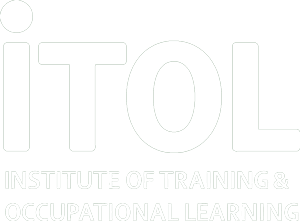Coaching in the workplace is a powerful tool that can help employees not only reach their full potential but also maximize their performance. It provides employees with feedback, guidance, and support to help them reach their goals. Coaching is one of several sound investments companies can make toward developing their people.
What Is Workplace Coaching?
Coaching in the workplace is a collaborative and empowering approach where the leader acts as a “thinking partner.” This strategy helps employees self-discover to reach their goals and objectives. Therefore, coaching differs from giving orders or dictating how the employee should work. This approach allows employees to take ownership of their development and feel more motivated and engaged.
3 Ways Coaching Is Different From Other Strategies:
- Coaching focuses on discovering rather than controlling;
- Leaders who coach are thinking partners to collaborate rather than dictate;
- A coach is goal-oriented rather than process oriented.
One big difference is that coaching focuses on helping employees develop their own conclusions to reach their goals. Rather than simply managing their tasks and work output.
This means that a coach will work with an employee to identify areas for improvement, set goals, and create a plan to achieve those goals by serving as a thinking partner rather than commanding and controlling every step.
Coaching is a more collaborative and empowering approach. Therefore, leaders who act as coaches work with employees as partners rather than giving them orders or dictating how they should work. This approach helps employees to take ownership of their development and feel more motivated and engaged in their work.
Traditional management often solely focuses on improving the team or organization’s performance. Coaching focuses on helping individual employees self-discover and reach their potential.
A coach will help employees to set and achieve goals, whereas a manager will focus on maintaining processes and procedures.
How To Implement Coaching In The Workplace
Companies continue to increase their investment in coaching as a leading form of developing their talent. Recent studies indicate that 9 out of 10 companies plan to increase their investment in coaching over the next 12 months.
Coaching can happen with trained professionals that are contracted from outside your organization, or they could be dedicated professionals that work inside the organization, or it can be managers that act as coaches by using a coaching approach.
Key Takeaways:
- Leaders who coach are thinking partners to collaborate rather than dictate.
- A coaching approach can help employees take ownership of their development and feel more motivated and engaged in their work.
- Asking questions can help leaders coach teammates more effectively.
- Coaching can support a positive work culture and foster growth.
- Each situation and employee is unique.
Achieve Coaching excellence with ITOL, check out our Certificate in Coaching:
Certificate in Coaching – The Institute of Training and Occupational Learning (itol.org)

